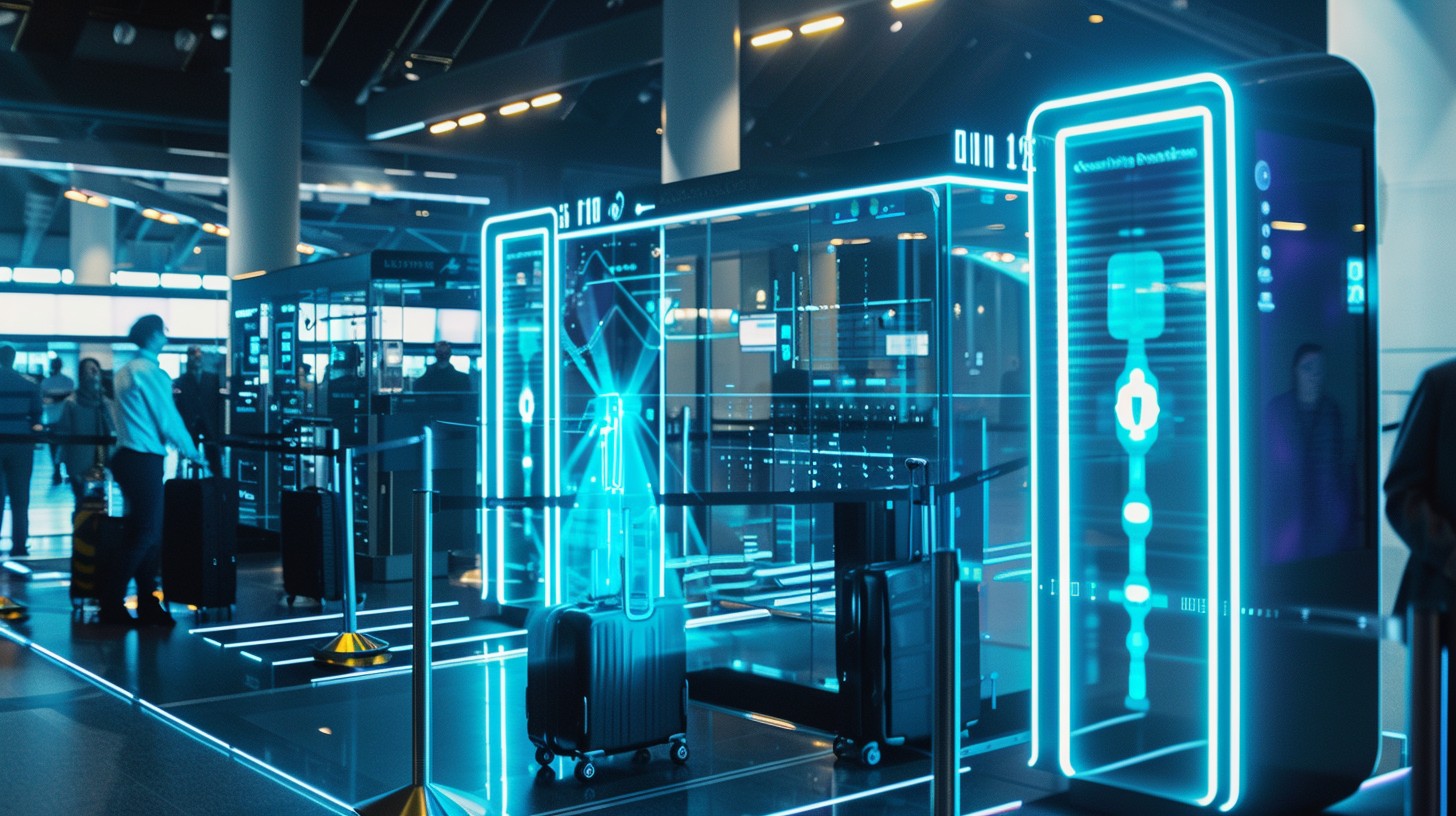Next-Gen Innovations. As technology advances at an unprecedented pace, we find ourselves on the brink of a new era. Next-gen innovations are not only transforming industries but also reshaping the way we live, work, and interact with the world around us. From groundbreaking developments in artificial intelligence (AI) to revolutionary leaps in biotechnology, the future promises a world where technology seamlessly integrates with every aspect of life. Here’s a look at some of the most exciting tech innovations that will define our future.
1. Artificial Intelligence and Machine Learning: Beyond Automation
While AI and machine learning (ML) have already begun to impact industries ranging from healthcare to finance, the next generation of AI promises to go far beyond what we’ve seen so far. Deep learning algorithms and neural networks will evolve to handle even more complex tasks, driving automation, data analysis, and decision-making processes with unparalleled efficiency.
In the near future, AI-driven assistants will become more intuitive, offering personalized solutions in real-time. What Tech Holds for the FutureFrom smart homes that can anticipate our needs to AI-powered healthcare systems that offer precision medicine, the integration of AI will push the boundaries of what’s possible, enabling more effective and efficient systems in every sector.
2. Quantum Computing: Unleashing Unimaginable Computational Power
Quantum computing is no longer a distant dream—it’s an emerging reality. Unlike classical computers that process data in bits (0s and 1s), quantum computers operate using qubits, allowing them to perform complex calculations at speeds that were once unimaginable. Next-Gen Innovations.
In the coming years, quantum computing will revolutionize fields like cryptography, drug discovery, and materials science. This immense computational power could solve problems that are currently impossible for classical computers to handle, opening up possibilities for breakthroughs in climate modeling, genomics, and AI. As companies like IBM and Google lead the charge, quantum computing will push the boundaries of innovation and problem-solving.
3. Extended Reality (XR): Merging the Physical and Digital Worlds
Extended reality (XR) is an umbrella term that encompasses virtual reality (VR), augmented reality (AR), and mixed reality (MR). These immersive technologies are set to redefine how we experience everything from entertainment to education. Next-Gen Innovations.
In the next few years, we can expect XR to become even more integrated into our daily lives. In the realm of education, XR can create immersive learning environments that allow students to engage with complex concepts interactively. In industries like real estate and architecture, XR will enable professionals to visualize projects and designs in real-time. Moreover, entertainment and gaming will continue to push the boundaries of realism, offering users increasingly immersive experiences.
4. Biotechnology and Genetic Engineering: Editing the Blueprint of Life
The rapid development of biotechnology and genetic engineering is one of the most exciting fields of the future. Advances in gene editing tools like CRISPR have the potential to not only treat but also cure previously incurable diseases. By altering the DNA of living organisms, scientists can correct genetic mutations, create disease-resistant crops, and even develop personalized medicine tailored to an individual’s genetic makeup.
Biotechnology will also play a key role in sustainable agriculture, producing more efficient crops to address global food shortages. The fusion of genetic engineering with AI will also accelerate the pace of drug discovery, making treatments more effective and widely accessible.
5. Internet of Things (IoT): The Next Level of Connectivity
The Internet of Things (IoT) refers to the growing network of connected devices that communicate and share data over the internet. Next-Gen Innovations.From smart homes to connected healthcare systems, IoT is laying the foundation for a world where devices seamlessly interact to create more efficient and intelligent systems.
In the near future, IoT will further integrate with AI and 5G technology, expanding its capabilities. Smart cities will use IoT to manage energy consumption, improve traffic flow, and enhance public safety. Wearable health monitors will allow for real-time patient monitoring, improving preventative care. In manufacturing, IoT will lead to more efficient and automated processes, driving productivity and reducing costs.
6. 5G and Beyond: Transforming Communication and Connectivity
5G technology is already making waves, offering faster download speeds, lower latency, and more reliable connections. However, the true potential of 5G lies in its ability to enable new technologies such as autonomous vehicles, smart factories, and remote surgery. With the rollout of 6G expected in the next decade, we’ll see even more dramatic shifts in communication, data transfer, and connectivity.
5G will drive the expansion of augmented reality (AR), virtual reality (VR), and mixed reality (MR) experiences, facilitating real-time interactions and collaborations. Next-Gen Innovations. This will transform industries like education, healthcare, and entertainment, creating more immersive and interactive experiences.
7. Autonomous Vehicles: Redefining Mobility
The future of transportation is autonomous. Self-driving cars, powered by AI, sensors, and IoT, will drastically reduce traffic accidents, increase efficiency, and provide new mobility options for those unable to drive. As autonomous technology matures, we’ll see its integration not only in personal vehicles but also in public transportation, logistics, and last-mile delivery systems.
Drones and self-piloted aircraft will also become more prominent, revolutionizing everything from e-commerce deliveries to emergency response services. The transportation ecosystem will evolve into a more efficient, safer, and eco-friendly system, reducing emissions and traffic congestion.
8. Renewable Energy and Sustainable Technologies: Powering a Greener Future
The transition to renewable energy sources is accelerating as climate change becomes an increasingly pressing issue. Solar, wind, and hydropower technologies are becoming more efficient, affordable, and widespread, providing clean energy alternatives that reduce our reliance on fossil fuels.
Emerging energy storage solutions, such as advanced batteries, will play a crucial role in the widespread adoption of renewable energy by ensuring a steady power supply, even when conditions for generating renewable energy aren’t ideal. The future will also see a rise in green technologies, from sustainable architecture to carbon capture systems, helping mitigate the effects of global warming and creating a more sustainable world.
9. Blockchain: Revolutionizing Security and Decentralization
Blockchain technology, best known for its role in cryptocurrencies like Bitcoin and Ethereum, is poised to impact far more than just finance. With its decentralized, transparent, and highly secure system, blockchain offers a wide range of applications, from supply chain management to digital identity verification.
In the future, decentralized finance (DeFi) platforms will continue to grow, offering financial services without the need for traditional banks or intermediaries. Blockchain’s secure, unchangeable ledger system will enhance the transparency and traceability of transactions, improving industries like logistics, healthcare, and government services.
10. Space Exploration and Colonization: The Final Frontier
With companies like SpaceX and Blue Origin leading the charge, space exploration is no longer just the domain of government agencies. Private companies are revolutionizing space travel, making it more accessible and affordable than ever before. Next-Gen Innovations.
In the future, space tourism, lunar exploration, and even the possibility of colonizing Mars are becoming more realistic. As technologies in spacecraft development, energy storage, and AI-driven space exploration advance, humans are on the verge of becoming an interplanetary species. The next-gen innovations in space technology will not only expand our reach beyond Earth but also inspire new possibilities for life and resources in the cosmos.
Conclusion: A Future Defined by Innovation
The pace of technological advancement shows Next-Gen Innovations no signs of slowing down. From AI to quantum computing, biotechnology to autonomous systems, the innovations of the next generation will reshape every aspect of our lives. The future is a world where the boundaries between the digital and physical, the possible and the impossible, continue to blur—driven by technologies that will redefine what it means to be human.



